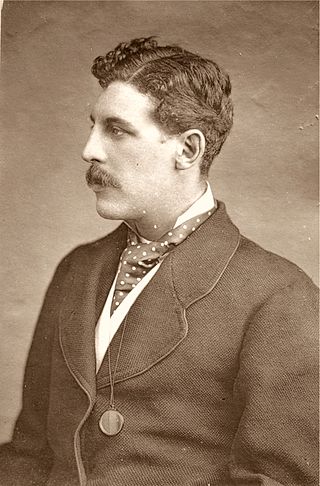
Sir Squire Bancroft, born Squire White Butterfield, was an English actor-manager. He changed his name to Squire Bancroft Bancroft by deed poll just before his marriage. He and his wife Effie Bancroft are considered to have instigated a new form of drama known as 'drawing-room comedy' or 'cup and saucer drama', owing to the realism of their stage sets.

Victorien Sardou was a French dramatist. He is best remembered today for his development, along with Eugène Scribe, of the well-made play. He also wrote several plays that were made into popular 19th-century operas such as La Tosca (1887) on which Giacomo Puccini's opera Tosca (1900) is based, and Fédora (1882) and Madame Sans-Gêne (1893) that provided the subjects for the lyrical dramas Fedora (1898) and Madame Sans-Gêne (1915) by Umberto Giordano. His play Gismonda, from 1894, was also adapted into an opera of the same name by Henry Février.

The Corn Is Green is a 1938 semi-autobiographical play by Welsh dramatist and actor Emlyn Williams. The play premiered in London at the Duchess Theatre in September 1938; with Sybil Thorndike as Miss Moffat and Williams himself portraying Morgan Evans, the West End production ran in all for 600 performances. The original Broadway production starred Ethel Barrymore and premiered at the National Theatre in November 1940, running for 477 performances.

Clement William Scott was an influential English theatre critic for The Daily Telegraph and other journals, and a playwright, lyricist, translator and travel writer, in the final decades of the 19th century. His style of criticism, acerbic, flowery and carried out on the first night of productions, set the standard for theatre reviewers through to today.
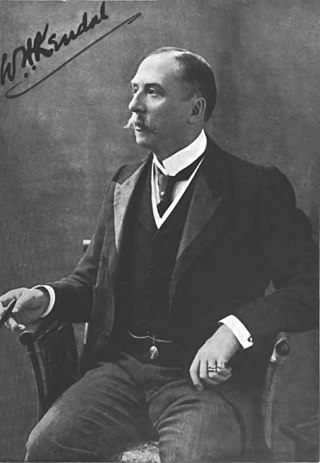
William Hunter Kendal was an English actor and theatre manager. He and his wife Madge starred at the Haymarket in Shakespearian revivals and the old English comedies beginning in the 1860s. In the 1870s, they starred in a series of "fairy comedies" by W. S. Gilbert and in many plays on the West End with the Bancrofts and others. In the 1880s, they starred at and jointly managed the St. James's Theatre. They then enjoyed a long touring career.

Dame Madge Kendal, was an English actress of the Victorian and Edwardian eras, best known for her roles in Shakespeare and English comedies. Together with her husband, W. H. Kendal , she became an important theatre manager.
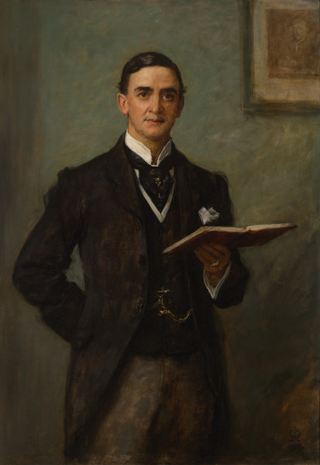
Sir John Hare, born John Joseph Fairs, was an English actor and theatre manager of the later 19th– and early 20th centuries.

Benjamin Charles Stephenson or B. C. Stephenson was an English dramatist, lyricist and librettist. After beginning a career in the civil service, he started to write for the theatre, using the pen name "Bolton Rowe". He was author or co-author of several long-running shows of the Victorian theatre. His biggest hit was the comic opera Dorothy, which set records for the length of its original run.
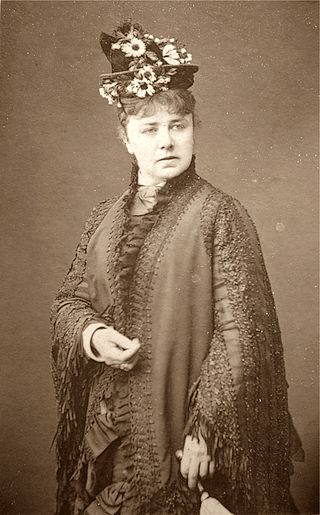
Marie Effie Wilton, Lady Bancroft (1839–1921) was an English actress and theatre manager. She appeared onstage as Marie Wilton until after her marriage in December 1867 to Squire Bancroft, when she adopted his last name. Bancroft and her husband were important in the development of Victorian era theatre through their presentation of innovative plays at the London theatres that they managed, first the Prince of Wales's Theatre and later the Haymarket Theatre.

Charles Hallam Elton Brookfield was a British actor, author, playwright and journalist, including for The Saturday Review. His most famous work for the theatre was The Belle of Mayfair (1906).

The Scala Theatre was a theatre in Charlotte Street, London, off Tottenham Court Road. The first theatre on the site opened in 1772, and the theatre was demolished in 1969, after being destroyed by fire. From 1865 to 1882, the theatre was known as the Prince of Wales's Theatre.
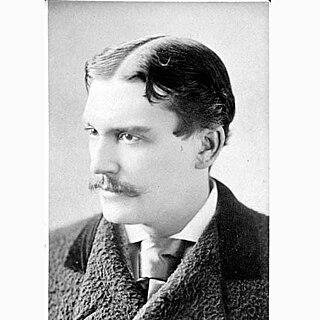
Henry James Montague was the stage name of Henry John Mann,, an American actor born in England.

Stella Boniface Weaver was a stage actress from Richmond, Virginia. In the late 1870s and 1880s she was an important member of the company of Lester Wallack, at 13th Street and Broadway (Manhattan). She appeared in Wallack productions of False Shame (1877), The School For Scandal (1878), Our Club (1878), and My Son (1878).

Mary Jeffreys Lewis known professionally as Jeffreys Lewis was a British-born American actress whose career lasted long after her popularity as a leading lady had faded.

The Lyceum Theatre was a theatre in New York City located on Fourth Avenue between 23rd and 24th Streets in Manhattan. It was built in 1885 and operated until 1902, when it was torn down to make way for the Metropolitan Life Insurance Company Tower. It was replaced by a new Lyceum Theatre on 45th Street. For most of its existence, the theatre was home to Daniel Frohman's Lyceum Theatre Stock Company, which presented many important plays and actors of the day.

Sherlock Holmes is a four-act play by William Gillette and Sir Arthur Conan Doyle, based on Conan Doyle's character Sherlock Holmes. After three previews it premiered on Broadway November 6, 1899, at the Garrick Theatre in New York City.

Diplomacy is a 1916 silent film drama produced by the Famous Players Film Company and distributed by Paramount Pictures. It is based on the 1878 stage play Diplomacy, adapted from the French play Dora (1877) by Victorien Sardou, which had enjoyed revivals and road shows for decades. This film stars Doro reprising her 1914 Broadway revival role. The film is now lost with just a fragment, 1 reel, remaining at the Library of Congress.

Hattie Williams was an American stage actress, comedian and vocalist from Boston. She was a popular player in vaudeville and with Charles Frohman's theatrical company at the turn of the twentieth century and appeared often at his famous Empire Theatre, New York.

The Empire Theatre in New York City was a prominent Broadway theatre in the first half of the twentieth century.
Roma Guillon Le Thière was an Italian actress whose career was on the London stage. She appeared in the original productions of Diplomacy and of Oscar Wilde's play A Woman of No Importance.


















